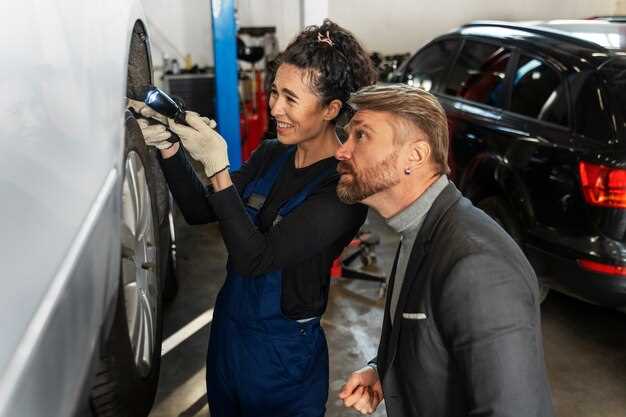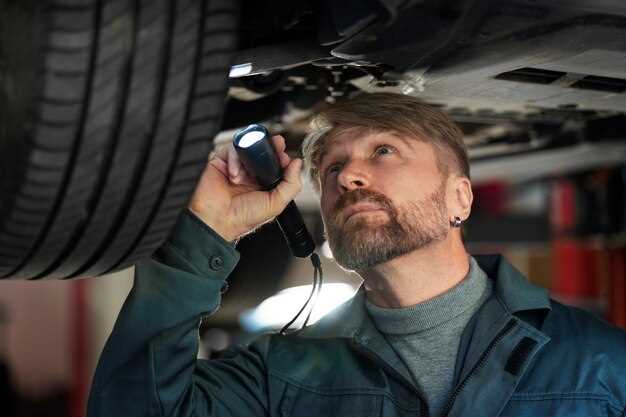
Owning a supercar is a dream come true for many automotive enthusiasts, but it also comes with the responsibility of proper maintenance and care. When it comes to servicing these high-performance vehicles, finding the right technician is crucial. Ordinary mechanics may lack the specialized knowledge required to handle the intricate systems and advanced technology that supercars possess.
Choosing a qualified technician involves considering their experience, certifications, and familiarity with your specific make and model. A mechanic who specializes in supercars will have a deeper understanding of the unique challenges and requirements associated with these exceptional machines. Their expertise can mean the difference between routine maintenance and potential catastrophic failures.
Moreover, an excellent technician not only provides top-notch service but also communicates effectively with the owner. They should be able to explain the specific needs of the supercar and offer tailored solutions. This builds trust and ensures that your investment is in capable hands. Selecting the right mechanic is not just a task; it’s a vital step in preserving the performance and longevity of your prized possession.
Identifying Qualified Supercar Technicians
When it comes to maintaining or repairing your supercar, it is crucial to find a qualified technician who specializes in high-performance vehicles. The right specialist will not only have a deep understanding of supercar mechanics but also possess the necessary tools and experience to handle any issues that may arise.
One key indicator of a qualified technician is certification from reputable automotive organizations. Look for specialists who have certifications specific to supercar brands or high-performance vehicles, which demonstrate their commitment to ongoing education and expertise in this niche field.
Experience in the industry plays a significant role in a technician’s qualifications. A specialist with several years of experience working exclusively with supercars will have a more refined skill set than a general mechanic. In addition, hands-on experience with different supercar models allows for better diagnostic capabilities and repair solutions.
Another important aspect is the use of advanced diagnostic equipment. Supercars are equipped with complex systems that require specialized tools for accurate analysis and repair. Ensure that the technician has access to the latest technology designed specifically for high-performance vehicles.
| Qualification | Importance |
|---|---|
| Certifications | Validate expertise and specialized training. |
| Experience | Enhances diagnosis and repair efficiency. |
| Diagnostic Tools | Essential for accurate problem-solving. |
| Client Reviews | Reflect reputation and quality of work. |
Lastly, gather feedback from other supercar owners. Client reviews provide insights into the technician’s reliability, customer service, and overall satisfaction. A qualified specialist should have a strong reputation within the supercar community, highlighting their ability to meet the specific needs of high-performance vehicles.
Evaluating Mechanic Experience with Specific Brands
When it comes to maintaining a supercar, the experience of the technician with specific brands is crucial. Each manufacturer has unique engineering, parts, and technology requirements, which can significantly affect the performance and longevity of high-performance vehicles.
Brand-Specific Training: A well-trained technician will often have completed specialized training programs directly from the manufacturer. This training provides them with insights into the latest technologies, diagnostic tools, and common issues specific to that brand. Look for technicians who are certified by the automaker, as this indicates a level of expertise that goes beyond standard automotive repair experience.
Hands-On Experience: In addition to formal training, relevant hands-on experience with specific models is invaluable. A technician who has worked on a range of supercars from a particular brand will be more adept at identifying and addressing issues efficiently. Ask about their experience with specific models or maintenance tasks, as this can reveal their familiarity with common problems and solutions.
Access to Genuine Parts: Technicians who are experienced with specific supercar brands typically have established relationships with suppliers of genuine parts. This ensures that repairs are performed with components that meet the manufacturer’s standards, maintaining the integrity and performance of the vehicle. Inquire whether they have access to these parts and understand the implications of using aftermarket alternatives.
Customer Testimonials: Finally, customer feedback plays a crucial role in evaluating a technician’s experience. Look for reviews or testimonials from fellow supercar owners who have utilized the technician’s services. Positive experiences, particularly related to brand-specific repairs, can give you confidence in their ability to care for your vehicle.
By carefully assessing a technician’s experience with specific supercar brands, you ensure that your prized possession is in capable hands, leading to optimal performance and longevity.
Understanding Specialized Tools and Equipment Requirements
When it comes to servicing and repairing supercars, a skilled technician must be equipped with a unique set of specialized tools and equipment designed to handle the complexities of high-performance vehicles. These tools go beyond standard automotive repair kits, often including advanced diagnostic machines, high-precision torque wrenches, and custom-fit tools tailored for specific supercar models.
The use of advanced diagnostic equipment is crucial for identifying issues within the sophisticated electronic systems that supercars rely upon. OBD-II (On-Board Diagnostics) scanners, scan tools, and software are essential for retrieving error codes and diagnosing intricate problems that may not be apparent during a standard inspection.
High-performance engine modifications require tools such as precision torque wrenches, which ensure that components are tightened to the exact specifications recommended by manufacturers. This precision is vital in maintaining optimal engine performance and longevity.
Additionally, supercars often utilize unique materials such as carbon fiber, specialized alloys, and high-grade ceramics. Therefore, having tools that accommodate these materials–from cutting tools to surface preparation equipment–is necessary for effective repair and maintenance.
Furthermore, a technician’s workspace should be equipped with hydraulic lifts or alignment racks, specifically designed to reach the low clearance of supercars. Safety equipment, such as wheel chocks and jacks rated for higher loads, is also a critical consideration to protect both the vehicle and the technician during the servicing process.
In conclusion, understanding the specialized tools and equipment requirements is instrumental in providing thorough and effective care for supercars. A technician who is equipped with the right tools not only enhances the quality of service but also ensures that these exceptional vehicles perform at their best.
Assessing Customer Reviews and Testimonials
When selecting a mechanic for your supercar, customer reviews and testimonials serve as invaluable resources. They provide insight into the experiences of previous clients with a particular specialist. Start by evaluating the overall sentiment of the reviews; a high number of positive comments often indicates reliable service quality. Look for specific mentions of the mechanic’s expertise with supercars, as this type of vehicle requires unique knowledge and skills.
Pay close attention to the details shared in testimonials. Customers often highlight aspects such as the accuracy of diagnoses, effectiveness of repairs, and the overall customer experience. A specialist who consistently receives praise for their attention to detail and customer service is likely to be a strong candidate for your supercar’s needs.
Consider the platform where the reviews are posted. Trusted automotive forums, Google reviews, and dedicated review sites offer a broader perspective on a mechanic’s reputation. Look for patterns in the feedback; if multiple clients report similar issues or commend a specific service, it reflects a consistent level of performance.
Don’t hesitate to ask the mechanic for references or case studies related to previous work on supercars. A reputable specialist will be willing to provide examples of their past experiences and successes, which can further bolster their credibility. Ultimately, thorough research through customer reviews and testimonials can greatly assist in identifying the right mechanic capable of meeting the unique demands of your supercar.
Inquiring About Certifications and Training Programs

When selecting a mechanic for your supercar, it’s crucial to assess their certifications and training programs. A qualified specialist should have undergone specific training related to high-performance vehicles and possess certifications from reputable organizations in the automotive industry.
Start by asking about the mechanic’s educational background. Many top-tier mechanics complete programs at accredited automotive schools, which provide foundational knowledge in various car systems. Additionally, inquire whether they have completed specialized training specific to supercars. Manufacturers often offer advanced training for their vehicles, and a mechanic with this training is better equipped to handle unique challenges.
Certifications from industry-recognized bodies, such as the Automotive Service Excellence (ASE) or manufacturer-specific qualifications, demonstrate that a mechanic has passed rigorous testing and continues to stay updated with the latest technology and practices. A mechanic who actively pursues ongoing education signals a commitment to excellence and a passion for their craft.
Moreover, don’t hesitate to inquire about their hands-on experience with supercars. Real-world troubleshooting and repair experience can often be a better indicator of skill than certifications alone. A mechanic who has spent years working specifically on high-performance vehicles will likely understand the intricate details that can make a significant difference in service quality.
Ultimately, choosing a mechanic involves validating their credentials and ensuring they have the necessary training to provide the specialized care your supercar deserves.
Comparing Service Costs and Warranty Options

When it comes to maintaining a supercar, understanding the service costs and warranty options available from different mechanics is crucial. High-performance vehicles often require specialized care, and choosing the right technician can make a significant difference in both expenses and peace of mind.
Below are key factors to consider when comparing mechanics:
- Service Costs:
- Labor Rates: Hourly labor rates can vary significantly between technicians. Luxury or specialized shops may charge higher fees due to their expertise.
- Parts Pricing: Ensure that you compare the cost of genuine parts versus aftermarket alternatives. For supercars, using OEM parts is often recommended.
- Maintenance Packages: Some mechanics offer bundled service packages that can save you money in the long run.
- Warranty Options:
- Manufacturer Warranty: Check if the mechanic is authorized to perform services without voiding your manufacturer’s warranty.
- Independent Guarantees: Some independent technicians offer their own warranties, which can cover parts and labor for a specified period.
- Extended Warranty Plans: Consider mechanics that provide options for extended warranties, particularly for high-value repairs.
- Quality Assurance:
- Technician Credentials: Verify the certifications and experience of technicians, as specialized knowledge is essential for supercar maintenance.
- Customer Reviews: Research online reviews and testimonials to gauge the quality of service provided by different mechanics.
- Shop Certifications: Look for shops that hold certifications from reputable organizations, indicating they meet high service standards.
Ultimately, balancing cost with quality of service and warranty options is key. A slightly higher price may be justified by superior service and the reassurance of robust warranty coverage, especially when it comes to protecting your investment in a supercar.
